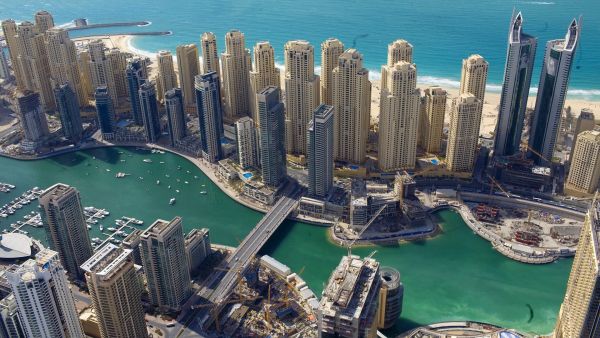Four businessmen, arrested in the UAE, were tortured into confessing to crimes which could bring them to face the death penalty, according to a United Nations report and a legal opinion obtained by their British lawyer.
The case for the four men, of various nationalities including Libyan, American and Canadian, has been taken up by Labour's justice spokesman, Andy Slaughter. Slaughter has been concerned about UK ties to the Gulf state following previous allegations of UK citizens being tortured in Dubai.
Geoffrey Robertson QC, a former judge for the UN, claimed in his legal opinion that the four businessmen, Salim Alaradi, Libyan-Canadian, Kamal and Mohamed Eldarrat, who hold Libyan and US citizenship, and Issa al-Manna, a Libyan, were falsely accused of funding an extremist organisation. The accused are due for trial on Monday, in the secretive state security chamber court in Abu Dhabi.
Alaradi was on a family holiday at a hotel by the beach in Dubai last summer when he was arrested by the State Security Agency (SSA), according to Robertson's report. He was not allowed to contact his family or any lawyer at the time of his arrest.
"[Alaradi] was in secret detention – at an air force base, it is believed – [where] he claims he was tortured, a claim corroborated by serious bruising observed on his body, by similar claims by several of the men who were detained at the same time and have now been released, and by evidence of torture and ill-treatment in the UAE gathered by Amnesty International and Human Rights Watch," the report states.
Alaradi said he was tortured by being hung upside down, chained in a stress position, subjected to sleep deprivation, and was beaten on the soles of his feet. "He was made to carry heavy weights while being beaten, subjected to waterboarding techniques and blasted for lengthy periods by ice-cold air," Robertson added. "His brother was in an adjacent cell, and heard him screaming."
They are accused of funding organisations known as the February 17 Brigade and Libya Dawn, which are paramilitary forces allied to the west and do not figure on the list of banned group produced by the Libyan government.
The UN working group on arbitrary detention (UNWGAD) is due to publish a report on the case and demand their immediate release from custody. UNWGAD said: "All of them were deprived of the right to challenge their arrest and detention before the judicial authorities and subjected to enforced disappearance, secret and incommunicado detention. [We] received reliable information on the acts of torture [inflicted on] the four victims..."
Documents from the reports make allegations that the men suffered electric shocks, were whipped, had guns held to their heads, were drugged and "hung with a rope around the neck". Some of the men claimed they were locked in a freezer for up to 45 minutes.
Upon receiving the claims made by the UN panel, the UAE government replied: "[The four men] are completely free to choose, appoint and meet with a lawyer according to the rules of procedures governing correctional institutions."
UNWGAD also produced a critical report earlier this month which declared that Julian Assange, the founder of WikiLeaks and who is resisting extradition to Sweden, was being held under arbitrary detention in the UK.
Prof Mads Andenæs, former chair of UNWGAD, told the Guardian: "Some states try to block rulings against the UAE, based on the usual 'your friend's friend is your friend, and your friend's enemy is your enemy' . The UAE has had much more moderate responses to previous UNWGAD rulings against them than the UK. I hope that this not now going to change after the inappropriate UK responses in the Assange case."
Slaughter added: "The UK has a special relationship with the UAE which should be reviewed in the light of the UN working group report. This case rings a warning bell to the UK government, which is sending international development funds to UAE to support the development of legitimate institutions, and selling them large quantities of arms."
Reprieve and other British human rights groups documented similar complaints from British citizens held in the UAE, who said they were tortured into making confessions.
Sue Willman, a member of the UK Law Society's human rights committee and partner at the law firm Deighton Pierce Glynn, said: "British citizens have also reported torture in Abu Dhabi and Dubai, where other Brits enjoy relaxing holidays. In the past year, I have been contacted by a growing number of ex-detainees and their families all complaining of torture and arbitrary detention there.
"As my client faces the death penalty in a kangaroo court, it is time for the UK government to make it clear to its partners in the Gulf that it can no longer tolerate such flagrant breaches of basic human rights".








